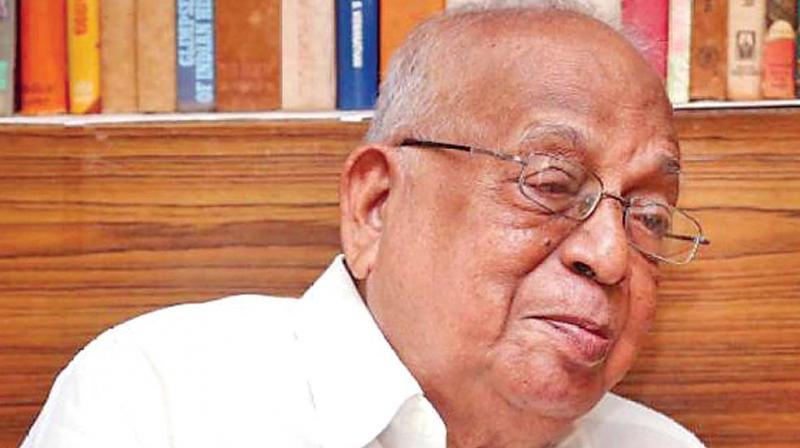Madras will remember its historian

The first time I met S Muthiah, a man I thought of as Mr. Madras, and known to most of us as a fierce champion of the city’s heritage, mostly architectural, I expected to see a man with a lean and hungry look, a description I discovered much later fit his father Mr. Subbiah much better. This was around 1993 or so, when he was slightly overweight unlike his later, relatively spare self. In search of writing opportunities, I found him placing rather more confidence in my ability than I had myself. He was a risk-taker in this regard; if your writing was below par, he was always perfectly capable of improving it with his deft editorial touch. I seemed to pass his test, and for the next 25 years, I had the privilege of assisting him in numerous writing and editing projects, though less and less regularly as my other commitments grew in the last decade.
Like quite a few others in Chennai, I owed many of my writing opportunities to my association with Mr. Muthiah. He was keen to find and encourage writers and was constantly nudging you to write books. Personal history or ‘biography as history’ was a topic close to his heart, and nothing pleased him more than efforts in this direction. “When are you doing your next book?” he often asked the poor souls who were yet to recover from the trauma of their recent masterpieces.
Rarely do we come across an equally disinterested champion of causes. Many of Mr Muthiah’s campaigns were totally lacking in glamour, and brought him no reward except the satisfaction of a good fight fought well, even if it meant standing up alone against authority and power. So many institutions owe their continued existence or revival to his ceaseless struggles on their behalf - the Madras Literary Society, the Roja Muthiah Library, the Queen Mary’s College premises, the DGP’s office on the Marina and the remnants of the rugby legacy - are some of these.
As the editor of the now defunct Aside, Madras’s first city magazine, he took an avuncular interest in neighbourhood newsletters and small magazines, often reproducing relevant articles from them in his beloved Madras Musings, never failing to send them cheques towards these - sometimes the only revenue they earned!
He was the discoverer of several birthdays, the most famous of them being that of the city of Madras. He also established 1846 as the year Alexander Arbuthnot founded the Madras Cricket Club. Personally, my association with Mr Muthiah opened doors to some rare experiences, even if occasionally not resulting in successful closure in the form of books.
Assisting him with The Spirit of Chepauk, the history of the city’s own MCC, attending a mega conference of prospective private power producers in New Delhi and visits to tea planters and auctioneers were particularly memorable, not to mention playing the role of editor-rapporteur at seminars at the MS Swaminathan Research Foundation.
The biggest project of them all was the Madras Gazetteer, recounting in detail 400 years of Madras’s history in its varied aspects.
While the third and final volume of the tome was released barely months before Mr Muthiah’s demise, he braved terminal illness to complete the editing of an encyclopaedic volume on Madras sport which is expected to be out soon.
Farewell, Mr Muthiah! Madras will always remember you.

